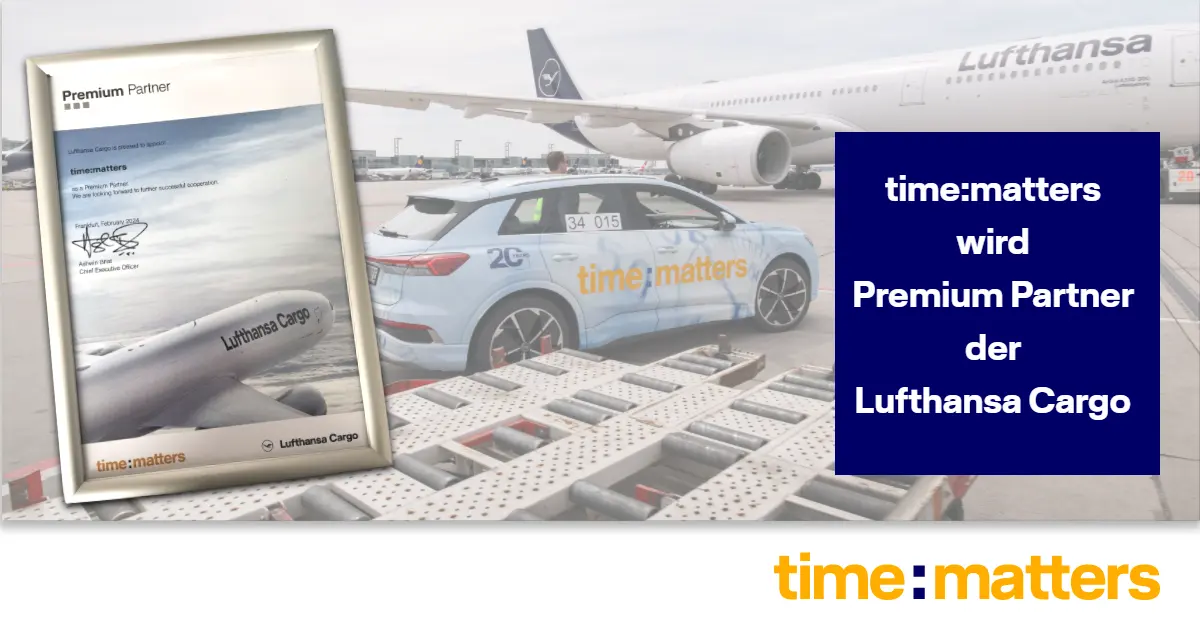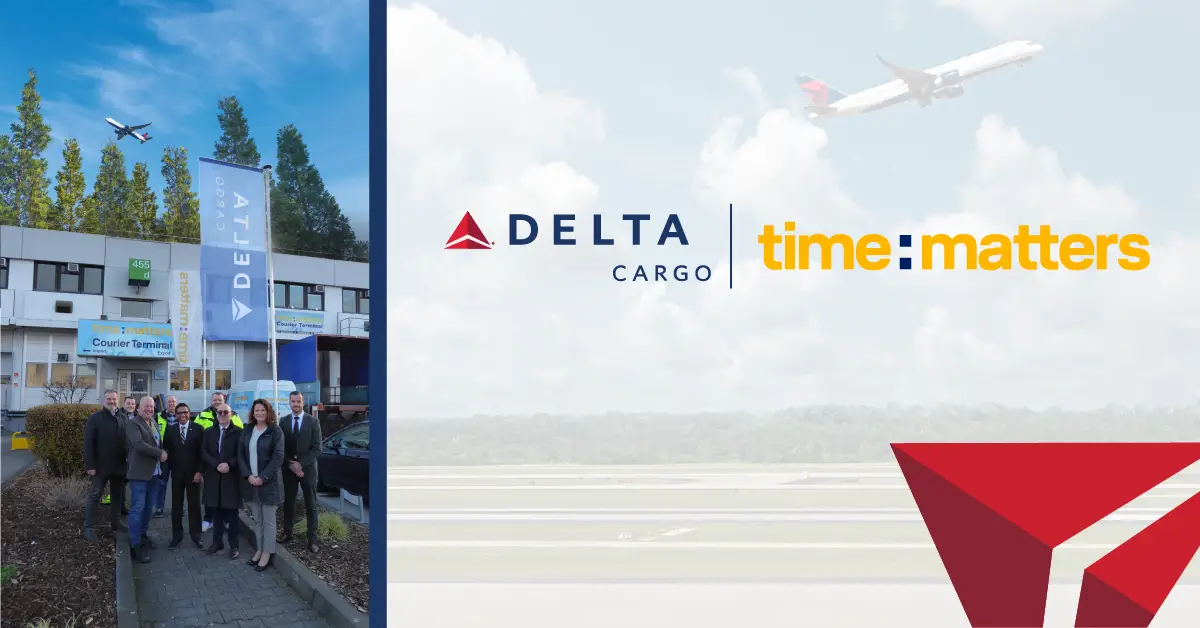News
Bleiben Sie auf dem Laufenden!
Lesen Sie News und Pressemitteilungen von time:matters, den Experten für nachhaltige, leistungsstarke Logistik und Spezialisten für eilige Transporte.
Mit einem globalen Netzwerk von über 500 Kurierpartnern und Zugang zu allen verfügbaren Fluggesellschaften liefern wir kritische Sendungen weltweit schnell per Luft, Schiene und Straße aus.




